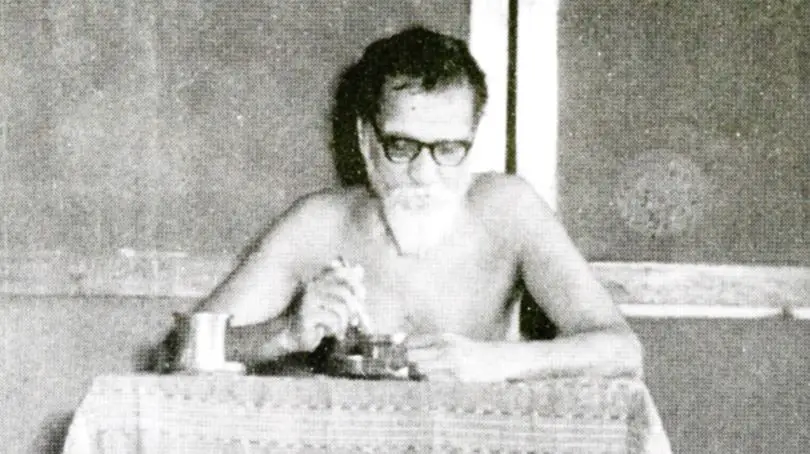Vinoba Bhave Essay: He was a Visionary Social Reformer and Freedom Fighter
Vinoba Bhave, born on September 11, 1895, in Kolaba, Maharashtra, was a prominent figure in India’s freedom struggle and a renowned social reformer.
His contributions to society and dedication to Gandhi Ji’s principles have left a mark on Indian history.
This article delves into the life and achievements of Vinoba Bhave, exploring his early life, his role in the independence movement, his social work, and his lasting legacy.
Vinoba Bhave Essay
Vinoba Bhave, known initially as Vinayaka Rao Bhave, was born into a middle-class family in Kolaba, Maharashtra. From a young age, he was interested in literature and philosophy.
His voracious reading habits and in-depth understanding of various languages, including Sanskrit, Marathi, Hindi, English, Urdu, and Gujarati, laid the foundation for his intellectual growth.
Early Life and Education
Vinoba Bhave received his early education in Baroda and later pursued further studies in Varanasi.
He immersed himself in philosophical literature during this time, shaping his ideological framework.
During his time in Varanasi, he encountered Mahatma Gandhi and became deeply influenced by his principles and ideals.
Contribution to Social Work
Inspired by Gandhian principles, Vinoba Bhave dedicated his life to social work.
He actively participated in the Non-cooperation and Swadeshi movements, raising his voice against British rule.
His unwavering commitment to truth and non-violence led to his imprisonment in 1932 on charges of conspiring against the British government.
The Bhoodan Movement led by Vinoba Bhave
One of Vinoba Bhave’s most significant contributions was the Bhoodan Movement, also known as the “charity of land movement.”
The movement started in 1951 and aimed to get big landowners to give some of their land to people who didn’t have land to work on.
Vinoba Bhave traveled extensively nationwide, urging landlords to practice land charity.
Thousands of acres of land were successfully transferred to those in need through non-violent means.
Vinoba Bhave’s Religious and Social Work
Vinoba Bhave’s social work extended beyond the Bhoodan Movement.
He also played a pivotal role in the anti-cow slaughter movement, advocating for the protection of cows, which held deep religious significance for many Indians.
Vinoba Bhave’s efforts addressed social issues and aimed to foster a sense of unity and harmony among diverse communities.
Role of Vinoba Bhave in Indian Independence Movement
Vinoba Bhave actively participated in several key events of the Indian independence movement.
He participated in the Nagpur Salt Satyagraha, the Dandi March, and the Temple Entry Movement in Kerala.
Recognizing his unwavering commitment to non-violent resistance, Mahatma Gandhi declared V. Bhave the first individual Satyagrahi in October 1940.
Philosophy and Their Teachings
Vinoba Bhave’s philosophy centered around Sarvodaya, meaning the welfare of all.
He believed in the inherent goodness of humanity and emphasized the importance of selfless service and compassion towards others.
His teachings emphasized the power of love, truth, and non-violence in transforming society and bringing about positive change.
Vinoba Bhave’s Impact on Education and Naturopathy
Vinoba Bhave recognized the transformative power of education and played a significant role in promoting educational initiatives.
He established educational institutions to provide quality education, regardless of social or economic background.
Additionally, V. Bhave was a proponent of naturopathy and emphasized the importance of natural remedies and healthy living.
Vinoba Bhave’s Ashram in Wardha
Vinoba Bhave established an ashram in Wardha, Maharashtra, serving as a spiritual and social center.
The ashram, named after his mentor Mahatma Gandhi, became a hub for individuals dedicated to social service, self-improvement, and the pursuit of truth.
Vinoba Bhave’s Achievements and Awards
Vinoba Bhave’s contributions to society were widely recognized nationally and internationally.
In 1958, he became the first Indian to receive the prestigious Ramon Magsaysay Award for Community Leadership.
He was posthumously awarded the Bharat Ratna, India’s highest civilian award, 1983 in recognition of his outstanding contributions to the nation.
Literary Works
Bhave was not only a social reformer but also a prolific writer. He authored several books, including “Swarajya Sastra,” “Geeta Pravachana,” and “Teesri Shakti” or “The Third Power.”
His writings explored philosophical, spiritual, and social themes, reflecting his deep understanding of human nature and society.
Death of Vinoba Bhave
Vinoba Bhave passed away on November 15, 1982, leaving a rich legacy of social reform and non-violent resistance.
His teachings and contributions remind individuals of the power of love, truth, and selfless service in creating a just and harmonious society.
Summary
Vinoba Bhave’s life and work exemplify the transformative power of compassion, truth, and non-violence.
His unwavering commitment to social justice and relentless pursuit of equality have left an indelible mark on India’s history.
Vinoba Bhave’s legacy serves as a guiding light, inspiring generations to work toward building a more inclusive and compassionate society.
